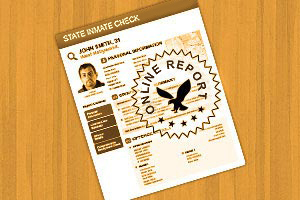Idaho Public Records
The Idaho State Records website provides the public with the right to gather, obtain, and examine public records. This ensures Idaho residents have access to this information in accordance with the Idaho Public Records Law. This act states that all government information and records are available to the public.
The goal of this website is to allow Idaho citizens access to Idaho state public records easily, efficiently, and concisely without requiring a reason for needing the information or revealing any personal information.
Criminal records, court records, vital records, and over 13 million transparent public records and included in this website.
Are Idaho Records Public?
Idaho's public records law enables interested persons to obtain copies of public documents from designated record custodians. Per the Idaho Public Record Act, Code § 74-102, interested persons or entities can inspect Idaho public records at any custodian agency within business hours. Public agencies, including local and state agencies, must create, store, file, re-create, and issue public documents on request to interested parties. Public Records Act requests typically come at a fee, but a record seeker can conduct a free public data search on some law enforcement agency websites.
What is Considered Public Information in Idaho?
Publicly accessible documents may include the following:
- Idaho criminal records
- Idaho sex offenders data
- Idaho divorce records
- Idaho court records
- Idaho arrest or incident reports
- Idaho property records
- Idaho inmate records
- Idaho bankruptcy records
- Idaho vital records (however, not all vital records are subject to public disclosure per state law)
The Idaho Code 74-101 defines public records as any writing containing general information maintained, stored, or created by a local or state agency. In addition, public records may exist as videotapes, maps, symbols, architecture plans, audio files, emails, and SMS. However, a record official's personal notes are not classified as public documents, provided the note is not shared with other persons.
How Do I Find Public Records in Idaho?
Requesters must contact the designated record custodian to get Idaho public records. For example, persons seeking to obtain inmate records must contact the Idaho Department of Corrections. Similarly, requesters searching for Idaho vital records must send a request to the Idaho Department of Health and Welfare, the custodian of vital records in the state. State residents and non-residents can learn how to do a public record search in Idaho via the following general steps:
Know the Requirements for Obtaining Idaho Public Documents
Record custodians in Idaho have different requirements before issuing public documents to interested parties. Thus, requesters seeking to understand how to access public records in Idaho must start by identifying the record custodians and their requirements. For instance, the Idaho Department of Health and Welfare will only issue public records to the record subject and other authorized persons. Likewise, juvenile records are only accessible to the record subject, school districts, and other authorized entities.
Contact the Custodian Agency Holding the Public Document
Record seekers must contact the agency responsible for issuing the preferred information. Under the Idaho public records law, custodian agencies are responsible for maintaining, storing, and giving copies of public records to requesters. Through custodian bodies, record seekers may obtain public documents via online or offline options. In some cases, record seekers must visit the agency's physical address to view or inspect public documents. That said, listed below are some of the custodian agencies in Idaho:
The Idaho Department of Health and Welfare
Idaho marriage, divorce, death, and birth records are under the agency's jurisdiction. It maintains a statewide database of all vital records documented in the state's counties and cities. Through the custodian agency, interested and eligible persons can order a public document online or offline at the address below:
Idaho Bureau of Vital Records and Health Statistics
P.O. Box 83720
Boise, ID 83720-0036
Idaho Arrest Records and Reports
Law enforcement agencies at the county level are responsible for maintaining and generating arrest records for interested members of the public. Therefore, record seekers must contact the law enforcement agency overseeing the region to obtain arrest records or reports. In contrast, the iCourt Portal maintains a statewide catalog of all criminal convictions documented within the state.
Create and Send Request for Idaho Public Records
Record custodians will only issue copies of public records after a written or in-person request. Sometimes, the agency may provide a downloadable request form that record seekers must fill out before obtaining Idaho public records. In the absence of a request template or form, record seekers must write a request letter and include the following information:
- The requester's full name
- The case number (this applies to court records);
- Record seeker’s contact details;
- The record seeker’s full name and, or aliases;
- Government-issued ID (if required);
- Preferred mode of delivery;
- Purpose of the request - provide a detailed description of your request;
- The timeframe when the record was documented;
- The record bearer's birth date;
- Other necessary data required for obtaining public records in Idaho;
- Additional information to assist with the search.
How Do I Look Up Public Records for Free in Idaho?
Record custodians do not charge fees for copies of public documents less than 100 pages. In addition, custodian agencies will not charge a fee if it takes less than two hours to procure the requested information.
Similarly, record seekers can view or inspect free public records in Idaho at the custodian's physical location. Inspection of public records is allowed during official business hours. Also, requesters can view certain public records, such as genealogy data, at computer systems in public libraries.
Idaho government agencies and departments also provide access to public records via online platforms. More so, a majority of these online platforms allow users to access information for free. For example, the Idaho Department of Corrections uses an online database to provide information on incarcerated or paroled inmates and those on probation. Therefore, record seekers can find inmate data by filling out the inmate's name and IDOC number.
Similarly, the Idaho Sex Offender Registry hosts an online search portal where public members can access all convicted sex offenders’ data in the state. Requesters can obtain sex offender information via the search options listed below:
A record seeker can also conduct free public records search in Idaho on some County Clerk and Recorder’s offices. For instance, Canyon County has a Recorder Search tool where requesters can find records kept by the Clerk’s Office.




